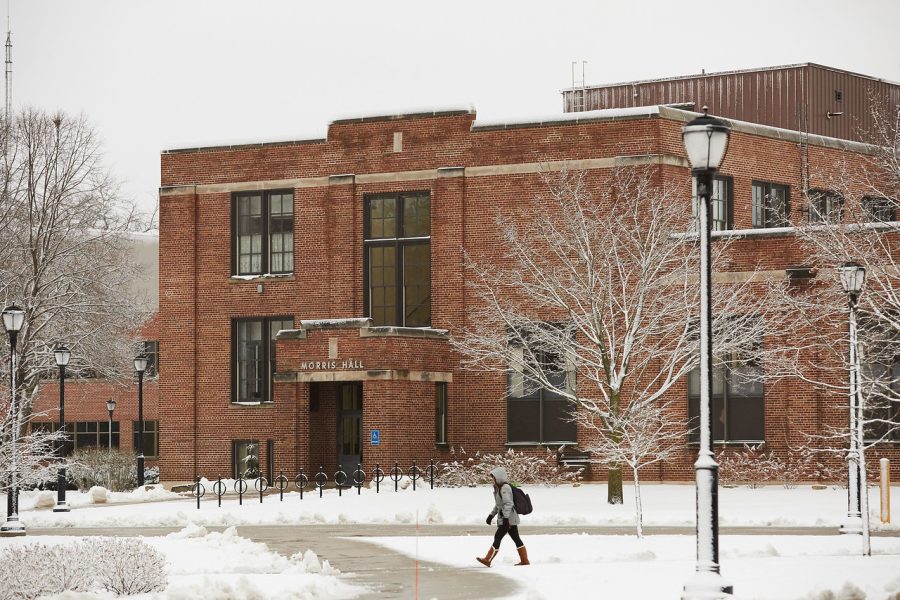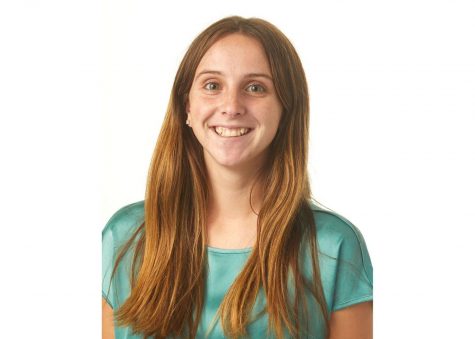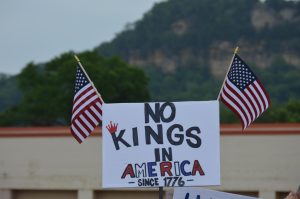“Everything I had worked and paid for was for nothing”: School of Education students speak out
March 3, 2022
In the past couple of years, the University of Wisconsin-La Crosse student body has grown to a larger size. To accommodate the increase in students, programs have adjusted and made changes. While many students have felt the impact of these changes, the students in UWL’s School of Education (SOE) have experienced some of the most drastic changes to their program.
The SOE at UWL has many applicants and each applicant has specific guidelines and tasks they must complete to be admitted and to graduate. Students that wish to go into education must apply to the SOE after completing the necessary prerequisites and purchasing an iPad.
Once they are admitted into the program, they can begin their classroom training. This training consists of three parts: field training I, field training II, and student teaching.
In order to graduate in 4 years, students would need to complete their prerequisite classes by their sophomore year and apply to the SOE program in the spring semester of their sophomore year so that they can begin field training in the first semester of junior year. Then they would have four semesters left to complete their in-class training and the remainder of their classes.
The field training requires students to be placed into classrooms in the La Crosse area. Recently, the broadfield social studies (BFSS) SOE has not been able to find enough field placements for the students that need them.
The applications into the SOE are due within the first two weeks of a semester. This allows students to be able to do field training in the following semester. This spring, the SOE shut down admissions within the broadfield social studies SOE because they had too many students that needed to be admitted into the program from the previous semester. This pushed many students’ timelines back by at least a semester.
Several students came forward to share their experiences in the SOE and the concerns they have. Cassie Hembrook is a sophomore at UWL and is a broadfield social studies education major. She came forward at a past Student Association (SA) meeting on Feb. 23 and to The Racquet Press to discuss her experience in the SOE.
She said that in her first year at UWL she had met with her advisor to come up with a plan to make sure she could graduate in four years. She ended up taking extra courses over j-term and the summer in order to make sure she met the requirements to apply to the SOE and graduate on time. Then the SOE shut down admissions and she said, “Everything I had worked and paid for was for nothing”.
Hembrook then went to meet with her advisor again to plan out an extra semester just in case. Since then, she has heard many other students run into similar issues. She said, “Our broadfield social studies program seems like it’s increasing in size and prestige. But if people aren’t able to get matched up with student teaching opportunities, this part of the School of Education honestly seems like it could collapse.”
Hembrook also mentioned hearing from other students that they are considering transferring to other UW system schools if they are unable to graduate in four to four and a half years.
Hembrook said that she is unsure what a solution to this issue could be, but she said, “I would highly appreciate some sort of apology and recognition of the mistakes made within the SOE. A lot of us secondary education students have dealt with a lot of anxiety and other mental health-related matters due to the unknown. An admittance of what went wrong would mean a lot.”
In addition, she said that the SOE administration should work with the local school districts to get students placement for their training experiences.
Another student that came forward to the SA and The Racquet Press was UWL junior Conner Brekke who is a broadfield social studies major. He is a transfer student at UWL and is working towards being a social studies teacher. Brekke said that he had no prior issues with the SOE until this semester when he received an email the night before the spring semester started stating that admissions to the SOE were closed for the semester.
Brekke had initially been planning on doing his first field training in the upcoming fall semester, but now that the applications are closed, he cannot do his field training in the fall and must wait another semester to apply. He was also told he is not guaranteed to get into the program next semester.
When Brekke talked to a member in the SOE admissions he said he was told that the program was backed up from the previous semester. They had already filled all of the available spots for field training and couldn’t accept any more students.
“I was perfectly set up to be in and out of here in three or four more semesters at 12 to 15 credits a semester and now that’s not the case, now I’ll be part-time for a couple of semesters,” said Brekke. He will need to do his field training along with his part-time semesters.
He also discussed the iPad requirement to be admitted to the SOE. Everyone that is part of the SOE program must purchase an iPad. This is a requirement that is made known to students before applying and can be added to the student bill, making it available for financial aid. Brekke said, “It is an equity situation, you shouldn’t force or require an iPad, it should be a choice.”
Brekke said that some students use their iPads a lot and some rarely use iPads.
“Between requiring all the SOE students to purchase expensive iPads, placing student teachers in distant communities like Tomah instead of in our city, and failing to help many of us have the opportunity to engage in field experience in a timely manner (which risks delaying our graduation), administrators have shown us where their priorities are,” he said.
Brekke said he would not change his decision to transfer to UWL and said that he knows that UWL turns out high-quality teachers.
UWL senior Jess Herkowski also spoke to the SA and The Racquet Press about her experience in the SOE. She is graduating this spring and is currently a student-teacher. Herkowski said that until she was admitted into the SOE program, she was very confused about how it worked.
“In my experience, I have received late placements, I have been talked down to when I told an SOE employee that my former field cooperating teacher wanted me to student teach, and I have largely been held to extremely high standards, mostly financial and time-related standards, not academic,” she said.
Herkowski also said that some of the SOE requirements are inequitable. She said that students are being placed in field training that requires a reliable car to get to, students must purchase an iPad, and some students must find housing for June when they are still student teaching but most leases in La Crosse end in May.
When asked about a possible solution, Herkowski said she wants UWL to start looking within the La Crosse School District for field experience placements and to stop requiring iPads. “Obviously, we can’t fix everything overnight. However, if I was talking to a high school senior and they said they wanted to go to school to be a teacher, I would NOT recommend UWL,” said Herkowski.
Students have created a resolution that they proposed to the SA at last week’s meeting. The resolution discussed some of the issues with equity and transparency within the SOE. The students are hoping to express their concerns to the SA and the administration. The resolution will return to the SA floor in the upcoming weeks.
Two of the authors of the resolution were UWL students Cassie Hembrook and Grant Mathu.
Mathu said, “We put some passion and strong language into this resolution to make sure that Student Senate would take the concerns of SOE students seriously. Over the past few weeks, a lot of people who are studying education at UWL have reached out to me about their fears that they won’t graduate on time, and it’s to the point where many of them have started to look at transferring or switching majors. That was a wake-up call, and I decided to get involved and help elevate the voices of SOE students.”
Hembrook said, “I have worked really hard and planned so that I could afford to further my education at UWL, so it goes without saying that I’m upset about what’s going on in the SOE. To me, the real problem is that when students try to articulate their concerns to administrators, they’re usually ignored. I think the resolution we put forward at the meeting on the 23rd is a good start towards opening up dialogue between students and administrators, but it’s clear that we have a lot of work to do to be heard.”
Students within the SOE plan to continue to discuss the issues they are facing within the SOE for the remainder of the school year. They are planning on rewriting a resolution to propose to the senate as well.








Kelsey • Mar 3, 2022 at 9:28 pm
The school of education places field courses yes, however, it is up to schools in the district to decide if they want to accept clinical students. Especially with COVID, schools are not wanting to bring in strangers, so they are accepting less clinical students. As a senior in the SOE program, I understand the disappointment, however, most of the concerns listed are those out of the control of the University.
Alex • Mar 3, 2022 at 5:46 pm
As a former UWL SOE student, I agree with the complaints listed. I had my own negative experience within the SOE at UWL and as a senior in my field 2 placement, graduated without my Ed degree and transferred to Viterbo to finish my teaching degree.
Adam Lien • Mar 3, 2022 at 5:03 pm
I was told the window for applications into the SOE was closed the weekend before this spring semester started and when I talked to the people who made that decision, she said that they made the decision sometime during finals week of last fall. When I met with my advisor, she told me that I had 2 options if I wanted to graduate on time, look into other majors or transfer which I cannot do because of medical reasons. It really disheartened me in becoming a teacher and I don’t even know if it’s what I want anymore and has drastically impacted my mental health and interest in even being in college.